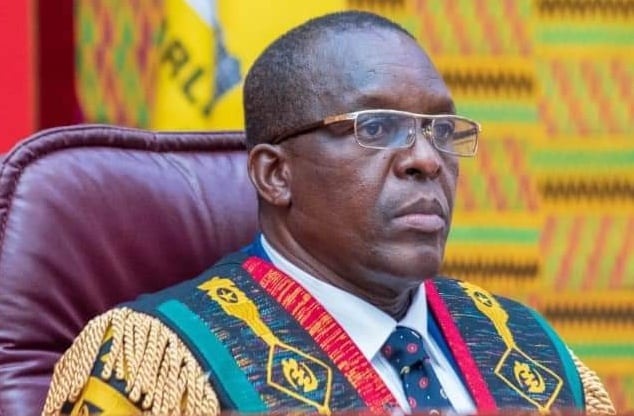On October 21, 2024, the Speaker of Parliament, Alban S.K. Bagbin, took to Facebook to express a poignant message that resonated with the political climate in Ghana. His post, which declared a wish for the nation to be “great and strong, beyond any single individual or institution,” hints at his awareness of the prevailing tensions and challenges facing the country’s political landscape. The specifics of his message, described as cryptic, occur against the backdrop of a recent significant political event: the declaration by the Speaker that four parliamentary seats were vacated following the dissent of four Members of Parliament who switched their allegiance.
This pivotal moment occurred on October 17, when the Speaker’s decision led to a shift in power dynamics within the parliament, resulting in the ruling New Patriotic Party (NPP) losing its majority status to the opposition National Democratic Congress (NDC). The gravity of this event wasn’t lost on Bagbin, who underscored the importance of these developments while acknowledging the broader implications for democracy in Ghana. His remarks pointed to the ongoing evolution of the nation’s legislative framework and the importance of unity and resilience in the face of political adversity.
The NPP’s response to the Speaker’s declaration was swift and contentious. The party chose to stage a walkout in parliament, which highlighted their vocal discontent with the decision and raised questions about parliamentary protocols and the integrity of political representation. Following this protest, the NPP escalated the situation by seeking legal recourse, turning to the Supreme Court to contest Bagbin’s declaration. This legal action signifies not only the intensity of the political rivalry but also the reliance on judicial processes to navigate parliamentary disputes—a situation that further complicates the broader democratic discourse in Ghana.
In a subsequent ruling on October 18, the Supreme Court mandated the freezing of the Speaker’s declaration, effectively pausing the ramifications of the parliamentary shift until further notice. This legal intervention raises critical questions regarding the role of the judiciary in political matters and its implications for both the executive and legislative branches in Ghana. It also reflects the judiciary’s position as a mediator in political disputes and highlights the complexities of the nation’s governance as it attempts to balance power among its institutions.
Given the significance of these events, Speaker Bagbin’s earlier comments about the 8th Parliament underscore the historical context of the current political situation. He emphasized the shared democratic experience of Ghanaians, a reminder that political volatility is often part of a broader democratic journey. His reflections suggest that despite the upheavals, there exists a fundamental commitment to the democratic ideals that underpin the nation’s governance. This perspective invites a broader examination of the historical struggles and triumphs that have shaped Ghana’s legislative practices and electoral processes.
Ultimately, Bagbin’s Facebook post serves both as a call for unity and a contemplative reminder of the responsibilities that come with political leadership. His invocation of divine blessings for the nation signals a hope for stability and growth that transcends individual ambitions or institutional conflicts. As Ghana navigates these turbulent political waters, the statements and actions of its leaders will likely continue to play a critical role in shaping the future of its democratic process, inviting reflection on the fundamental values that will guide the nation in the coming years.


